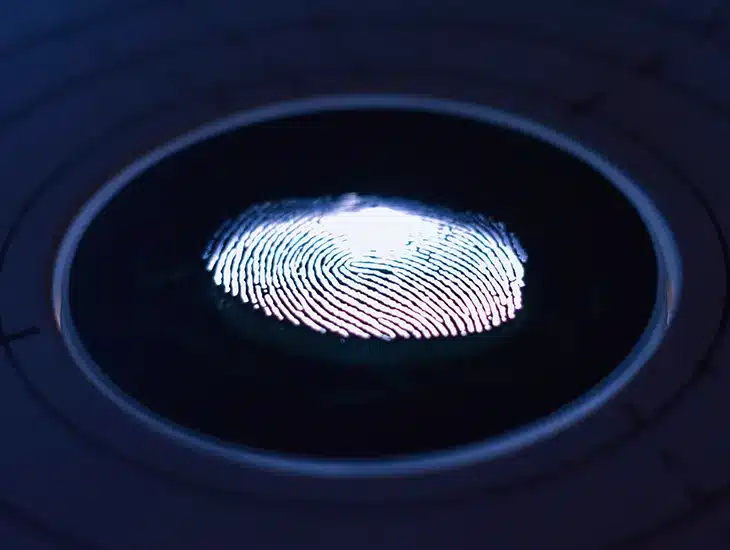
Upon registering for an account with Symphonic, Starter and Partner clients will be required to verify their identity via our identification provider, IDenfy. You will not be able to submit a release until your identity has been successfully verified by IDenfy. If IDenfy validates your identification documents and webcam photo, you will be able to proceed with release submission and your account will be active, assuming there are no other issues with your account or content. If you are unable to pass verification, it may be because of the quality of the identification documents provided, or that IDenfy cannot validate your identity. Symphonic will review accounts that do not pass identity verification and, on some occasions, based on our review, we will allow for additional attempts to validate via IDenfy. If a potential client is continually unable to validate their identity, the client’s account will be terminated.

Symphonic considers each account to have one owner in our records, and that owner is responsible for the representations, warranties and other commitments made in the Digital Distribution Agreement with Symphonic. That owner is also legally responsible for the actions of anyone else they invite into, or allow to continue to have access to, the account in question. Any request for account ownership change requires an update to your agreement with Symphonic, which Symphonic may or may not approve, at its sole discretion. No change in ownership is permitted until Symphonic approves the request and is able to validate the identity of the new owner and the consent of the prior owner on record.

Symphonic does not store your password. Safeguarding your password is your responsibility. We recommend you follow password protection best practices. We recommend that you NOT share your password with anyone and instead, use our User Profile Roles feature if you need others to be able to log into parts of your account. You acknowledge that it is possible that you could lose access to your music and/or your royalties if a bad actor is able to log into your account as a result of your lack of password security best practices.

Symphonic enables you to invite collaborators to your account. Additional roles can be customized based on the access to various parts of our system that you want for your collaborators. Only an owner of an account can discuss the Digital Distribution Agreement. Every user invited to the platform abides by our Terms of Use and is held to the same very high standards regarding anti-fraud. You are responsible for who you invite into your account. Abuse of any kind by any role may subject that role and your entire agreement with Symphonic to be terminated, and you may lose access to your music and your royalties.

Two-factor authentication (2FA) is a security system that requires two separate, distinct forms of identification in order to access something. You will be required to enter a 2FA code on your initial login to protect your account and after 30 days. Additionally, you will be required to enter an additional 2FA code to access certain sensitive account information and financial data. You must have access to the email that is logging on in order to receive the code for logging in.

For every piece of music or video that you distribute through Symphonic, you are stating that you have 100% of the necessary rights to distribute it. This means you are representing that there are no unauthorized samples, beats, vocals, images, names or likenesses. You are also representing that you will be able to provide clear and legitimate documentation proving that you have these rights, any time Symphonic asks. This applies to artists, managers, labels and any other types of clients. Note that licensing a “beat” or a “vocal” may not give you the legal right to distribute through Symphonic. You have to check that with the agreement you signed with the source of your licensed “beat” or “vocal.” We take the integrity of copyrights very seriously, and violation of our terms in this area may result in full account termination and you may not receive royalties generated by content without 100% legitimate and verified rights.

Symphonic monitors all artist names submitted to ensure compliance with DSP watchlists. If undocumented, trademarked names are submitted, those releases will not be approved. The metadata submitted must be within the guidelines set by our partners. Should any client attempt to take advantage of those standards, try to “game” any systems, or submit false metadata, the release will not be approved and the client may be terminated.

Clients of Symphonic are subject to monitoring of consumption activity. This includes daily analytics (available to users as well) that cover: Streams, Downloads, User Generated Content activity, and more. If suspicious activity is detected, Symphonic will act on it according to the provisions set forth in our Digital Distribution Agreement, Terms of Use, and Privacy Policy. Any suspicious activity determined by DSPs or Symphonic may result in account termination and non-payment of such illegitimate royalties.

Every song submitted through Symphonic is run through audio fingerprinting. Symphonic attempts to screen content and ensure that the client is the proper rights holder. Symphonic utilizes ACRCloud for audio-fingerprinting. ACRCloud is an audio recognition service, providing Music Recognition, Copyright Compliance, Identification services, Cover Song Detection and Broadcast Monitoring to the music industry. It has indexed over 72 million tracks in its music fingerprinting database. ACRCloud serves customers such as Deezer, Anghami, Alibaba, Audiomack, Xiaomi, Musixmatch, etc.

Symphonic has partnered with Tipalti to execute client payments. Tipalti is a trusted, global payments provider serving over 100 countries and a wide variety of currencies and payment types. Tipalti works with large global companies like Twitch, X, Roblox and GoDaddy. Every client must submit their payment and tax details, and must be approved by Tipalti. Clients cannot be paid until you have been approved by Tipalti. We recommend getting approved as soon as you set up your account. Please don’t wait until the last minute, or you may not be able to get paid quickly. Each payment is thoroughly reviewed for correctness prior to being paid out through Tipalti.

Symphonic is proud to be a founding member of the Music Fights Fraud Alliance. Music Fights Fraud is a global task force aimed at eradicating various types of streaming fraud. This alliance marks the first time that an organization has been formed bringing together members from all corners of the music industry to combat fraud in music. MFFA’s mission is to ensure that the global music industry market is fair and that all members actively contribute to solutions intended to balance the equity of its operations. As an alliance, the members detect, prevent, mitigate, and enforce anti-fraud measures, thereby moving closer to an industry where fraud has no place. The members provide greater cross-platform collaboration and data sharing in coordination with a third party, the National Cyber-Forensics and Training Alliance (NCFTA), a nonprofit partnership between private organizations, government, and academia. The NCFTA employs seasoned professionals with backgrounds like the FBI and U.S. Secret Service. The NCFTA’s mission is to provide a neutral, trusted environment enabling multi-party collaboration to identify, mitigate, and disrupt cyber crime. For more information please visit www.ncfta.net.